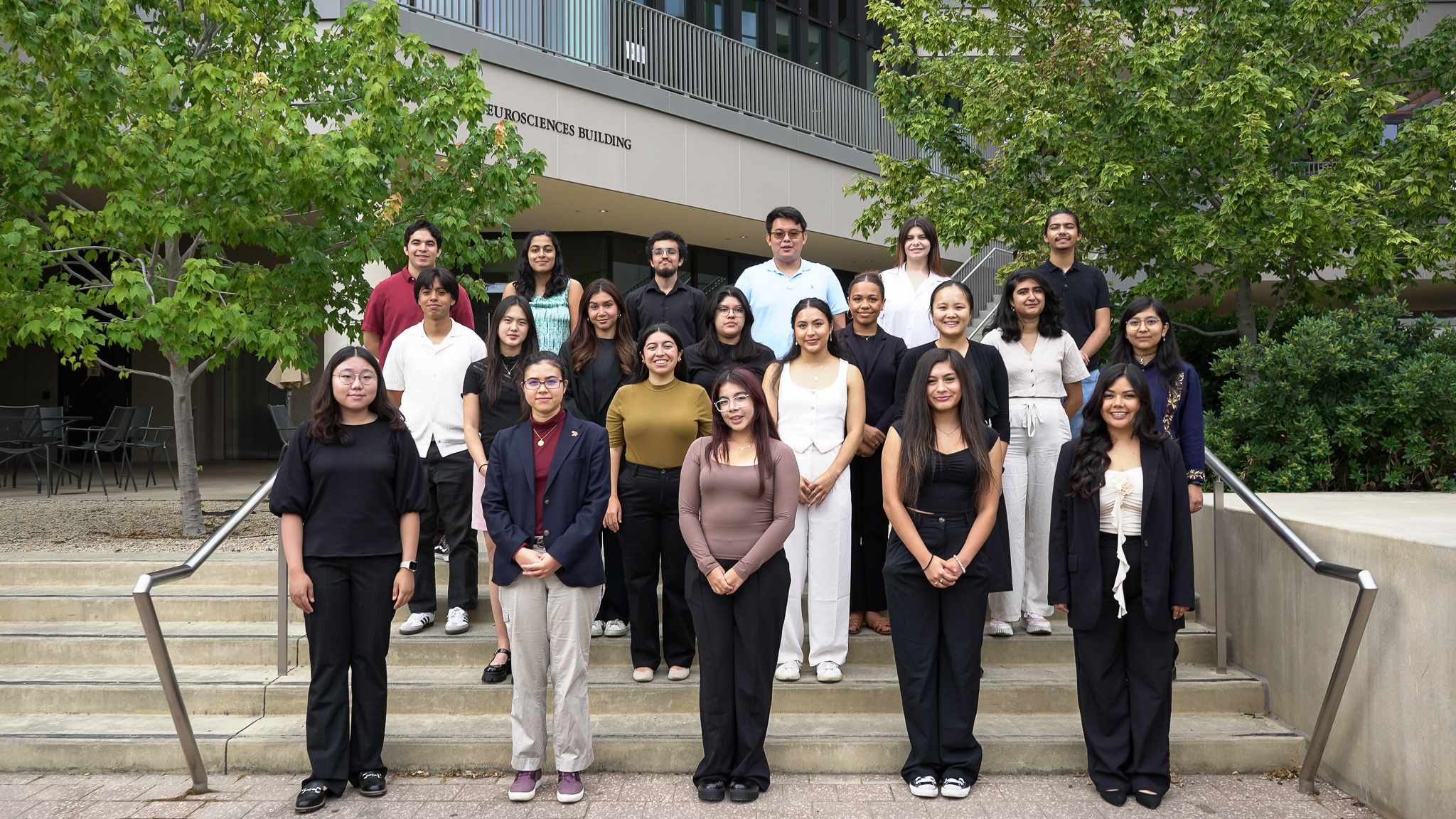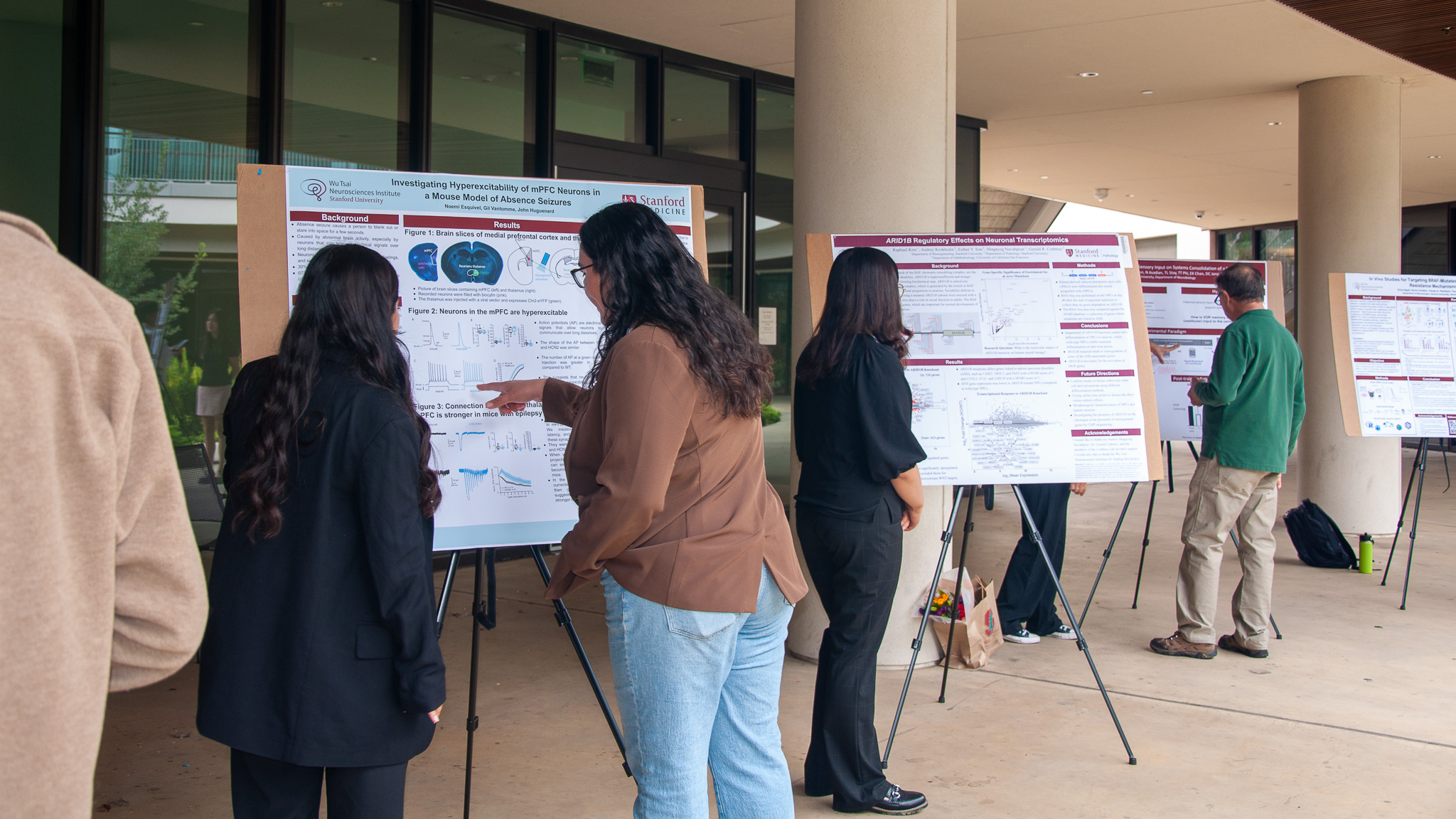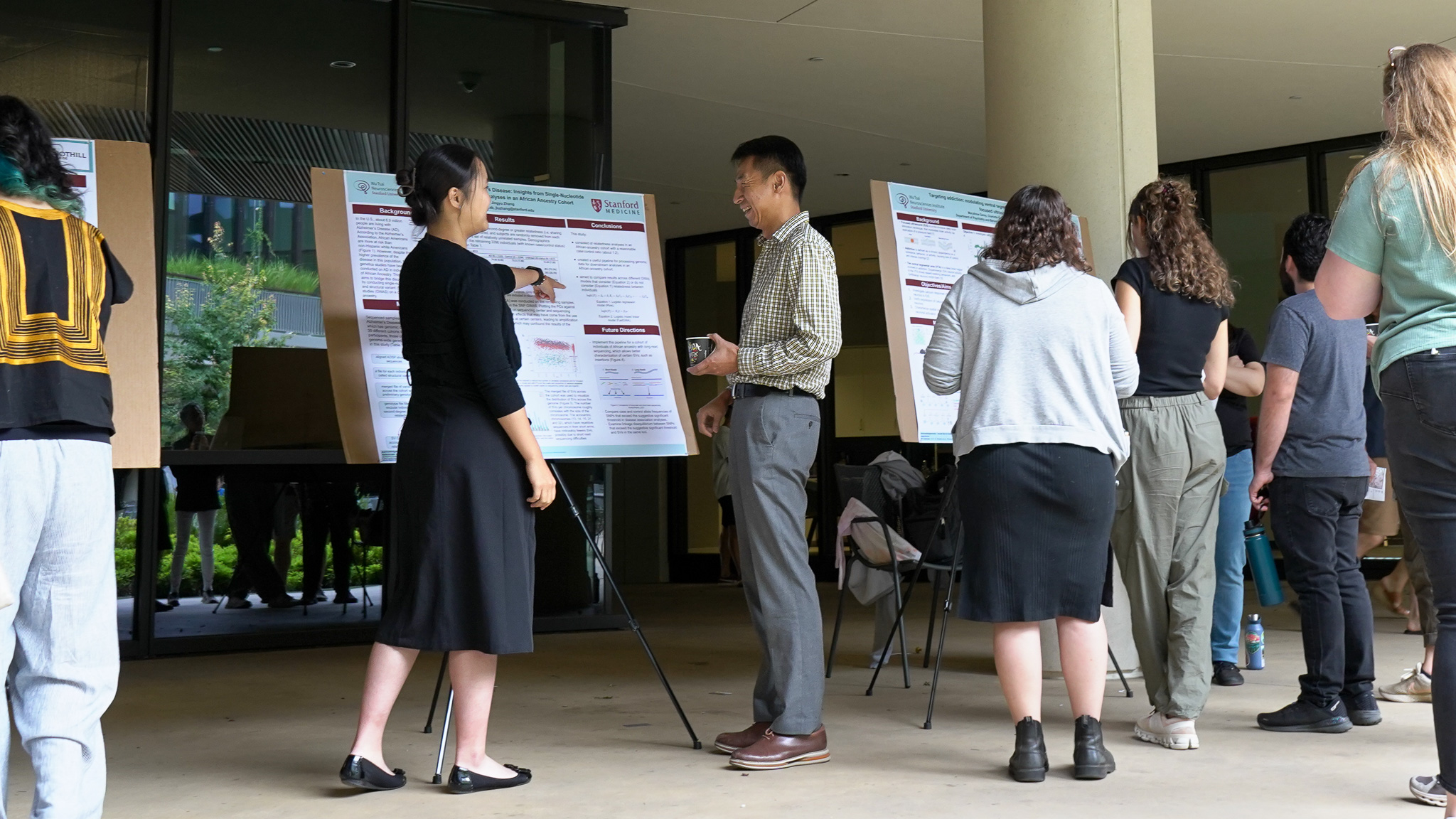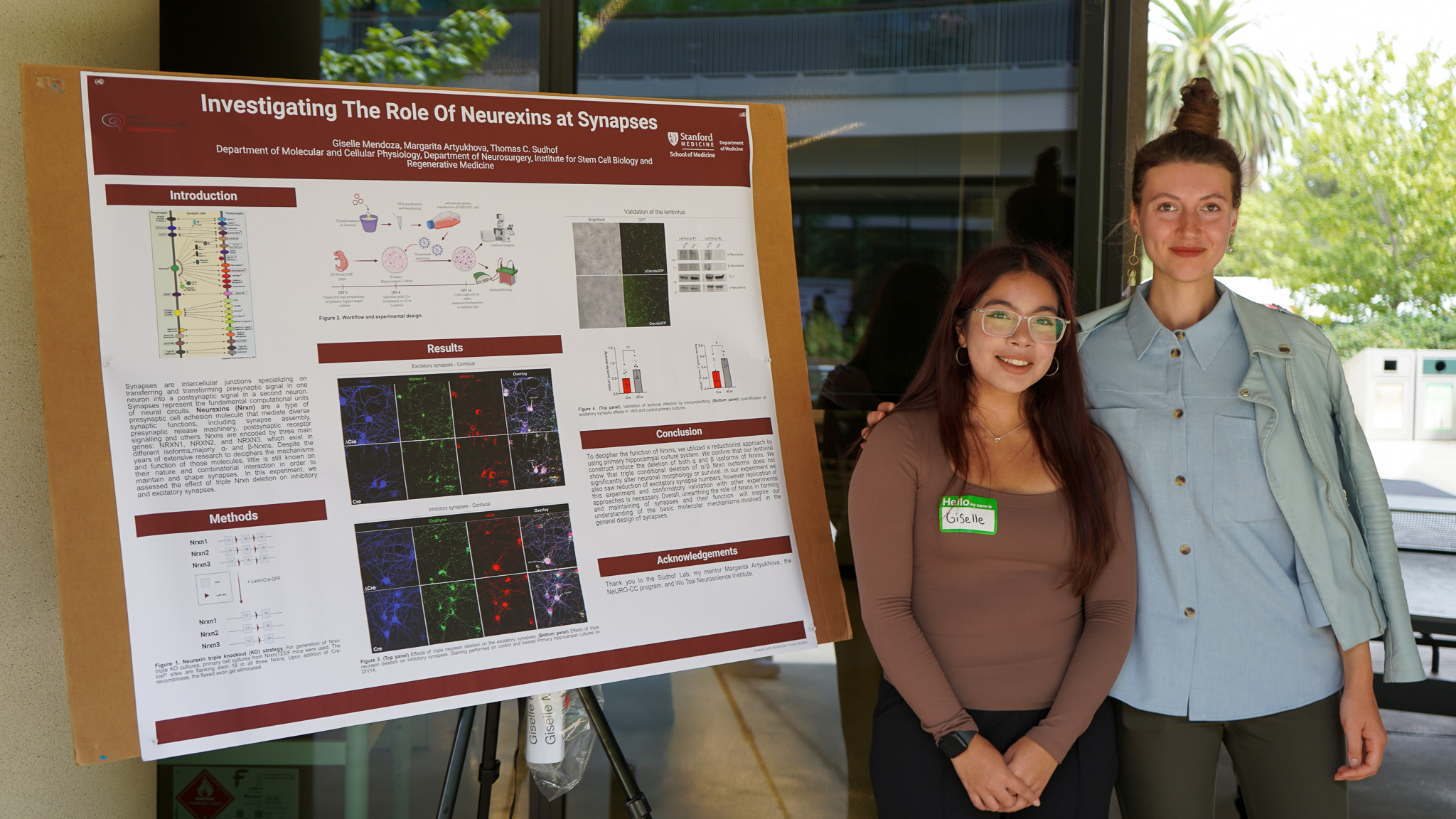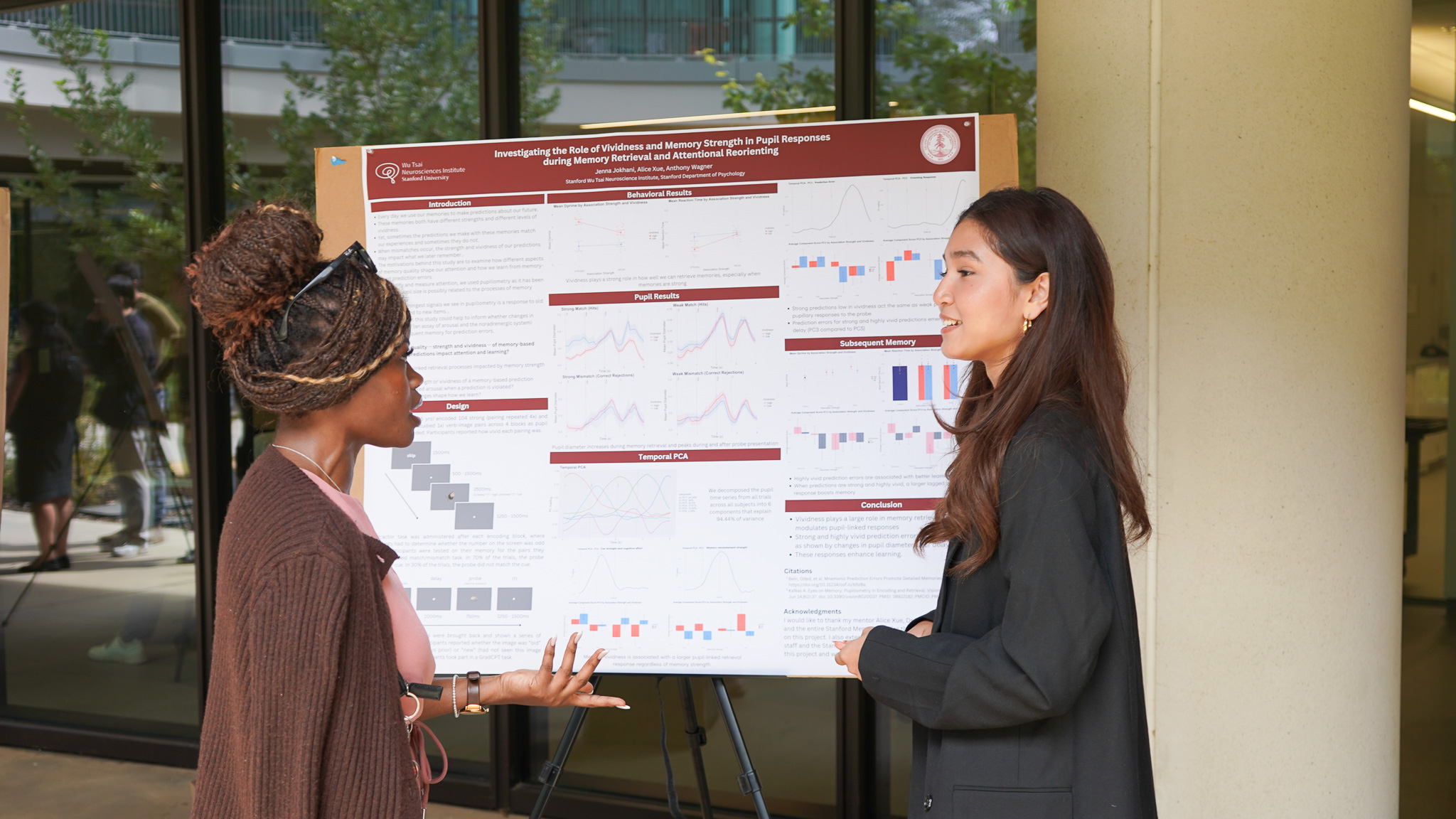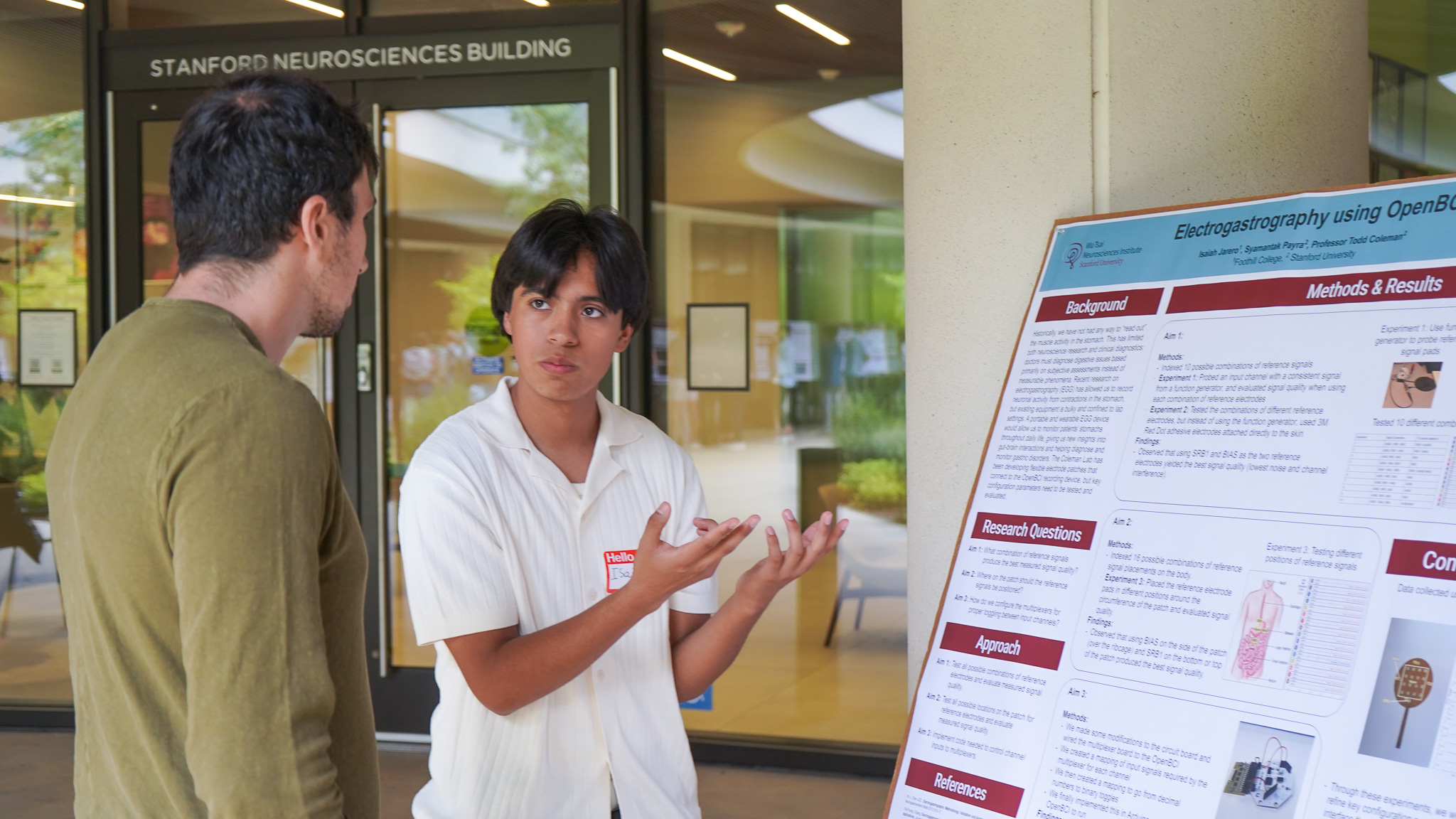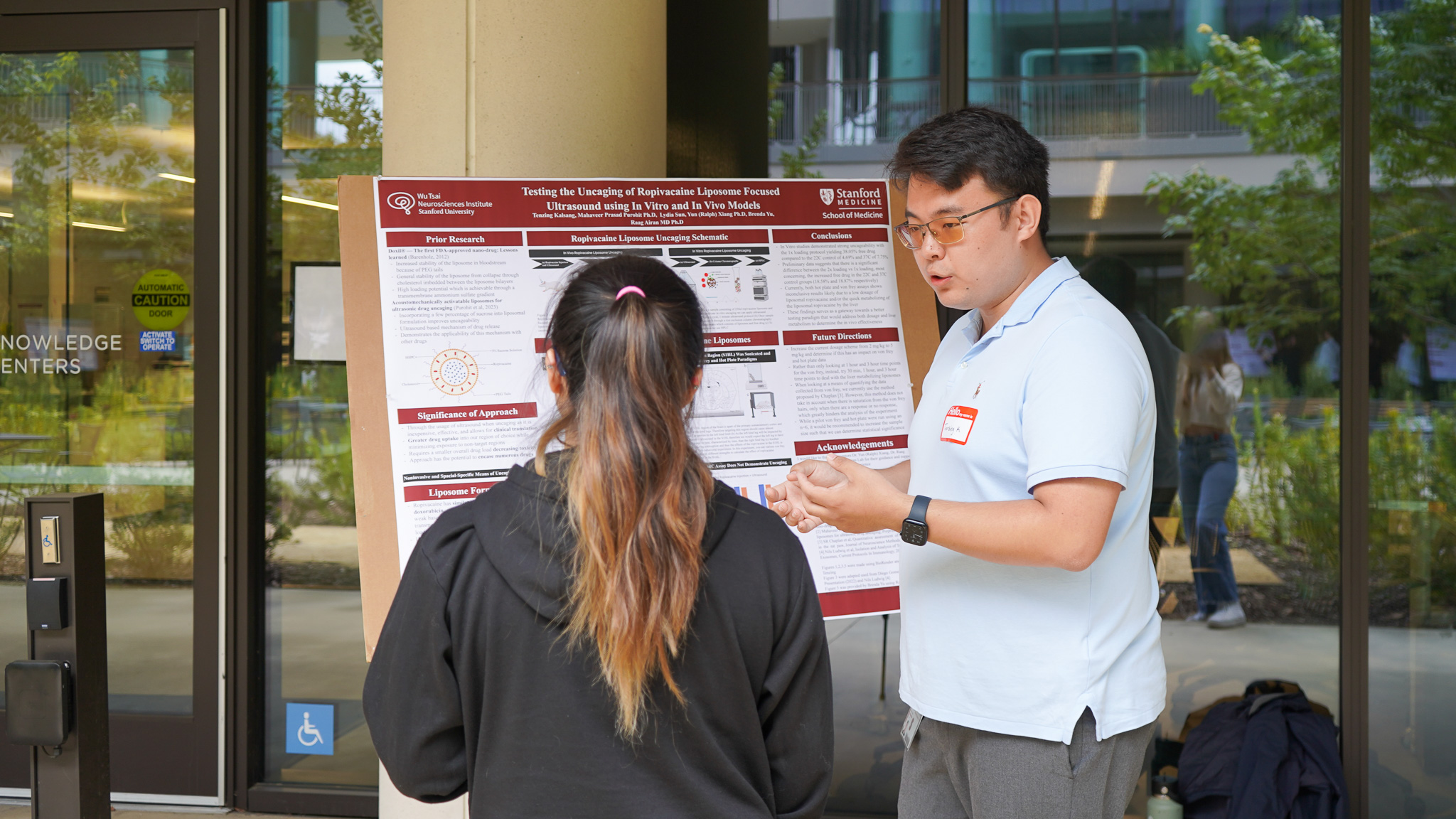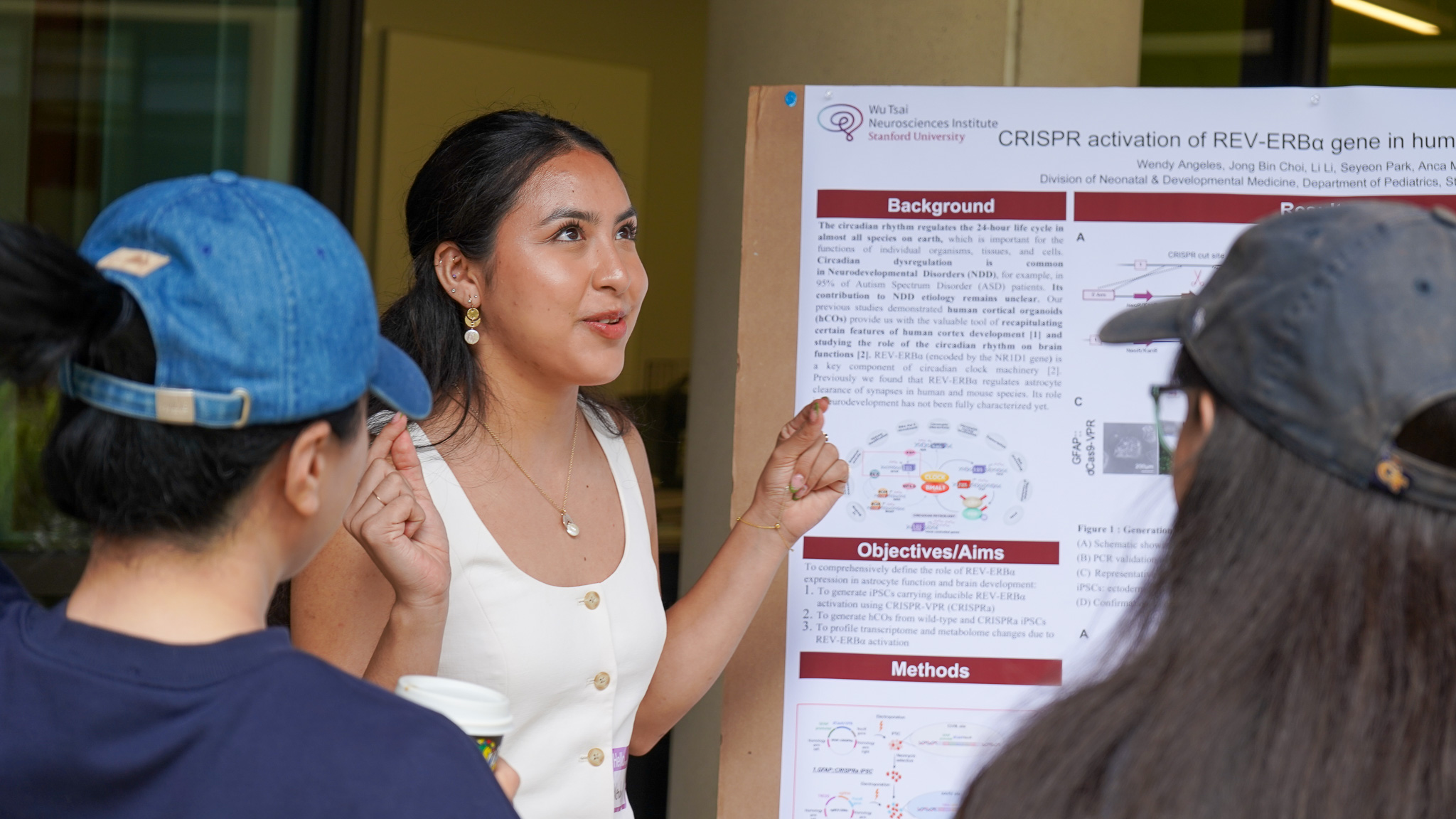Research brings together Stanford undergrads and community college fellows
This summer, scientific discussions were in full swing as Stanford undergraduates and local community college fellows shared their research on topics like memory retrieval, gut-brain connectivity, neurodevelopment, and brain resilience at the Wu Tsai Neurosciences Institute’s third annual NeURO and NeURO-CC Poster Session.
The Neuroscience Undergraduate Research Opportunity (NeURO) and NeURO – Community College (NeURO-CC) programs at the Wu Tsai Neurosciences Institute provide hands-on lab experience and professional development workshops to students with little to no prior research experience. NeURO, in its fifth year, immerses Stanford undergraduates in research, while NeURO-CC, in its third year, extends these opportunities to local community college students, fostering diverse perspectives in the field.
Valerie Vargas-Zapata, community engagement program coordinator at the Wu Tsai Neurosciences Institute, explained the mission behind the NeURO and NeURO-CC programs: “The goal of our undergraduate programs is to make neuroscience research accessible to students that have not done research before or are just getting started in their scientific journey.” By reducing barriers such as a lack of research experience or financial constraints, the programs aim to support fellows as they begin their careers as undergraduate researchers.
Reflecting on the fellows' growth, Vargas-Zapata added, “It’s incredible to see our students develop both personally and professionally throughout the summer and to witness that growth materialize in their poster presentations.”
"These efforts are helping us open doors for students with little to no prior experience to get involved in exciting research and innovation," added Zulema Garibo Gonzalez, Wu Tsai Neurosciences Institute training and fellowships program coordinator.
The poster session showcased research from 21 fellows—10 from NeURO and 11 from NeURO-CC—spanning a wide array of neuroscience topics such as autism and genetics, biomarkers of Alzheimer’s disease, and pediatric brain tumors. For many students, this event was their first time presenting their own research.
“It was really nice to have different workshops where you can practice research skills, have networking opportunities, and hear people’s stories,” said NeURO-CC fellow Giselle Mendoza. She studied the role of neurexin proteins in synapses in the lab of Nobel Laureate Thomas Südhof, professor of molecular & cellular physiology and neurosurgery, highlighting the remarkable opportunities provided to community college students.
Jenna Jokhani, a NeURO fellow majoring in political science at Stanford, studied the role of vividness and strength in memory retrieval in the Memory Lab of Anthony Wagner, professor of psychology and a deputy director of the Wu Tsai Neurosciences Institute. “[NeURO] has been very helpful because I never had much exposure to STEM… it helped me ease into working with the lab, give me funding, and create my very first poster,” Jokhani said.
NeURO-CC Fellow Isaiah Jarero, an electrical engineering major, researched the connection between the gut and the brain in the lab of Todd Coleman, associate professor of bioengineering and Institute scholar at Wu Tsai Neuro. “It was definitely intimidating going in with no prior experience, but that’s the whole point of this program… to expose you to this line of research and see if you like it or not,” Jarero said.
For some fellows, the poster session also opened new potential career paths. Tenzing Kalsang, a NeURO fellow, studied noninvasive methods of neuromodulation in the lab of Raag Airan, assistant professor of radiology. Reflecting on his experience, Kalsang said, “Initially, I was strongly MD, but now after NeURO, I’m considering MD/PhD or an MD with a heavy emphasis in research. I think exposure to these [programs] is very important… then you can decide on which path of neuroscience you would like to pursue later on.”
NeURO fellow Wendy Angeles worked in the lab of Sergiu Pasca, Uytengsu Family Professor of psychiatry and behavioral sciences. Her research on CRISPR activation of a specific gene in human brain organoids opened her eyes to the life of a PhD student. “I came in wanting to pursue an MD, but now I’m more open to research and possibly continuing this field long-term.” Wendy’s experience, like many of her peers, highlights how the NeURO program opens doors to new career paths, helping students explore and shape their futures in neuroscience.
By providing students with the tools and opportunities to start a path in neuroscience research, these programs help prepare the next generation of neuroscientists to tackle the complexities of the brain. Through their research, these students are reinforcing the mission of the Wu Tsai Neurosciences Institute in advancing our understanding of the brain in health and disease and shaping the future of neuroscience.

